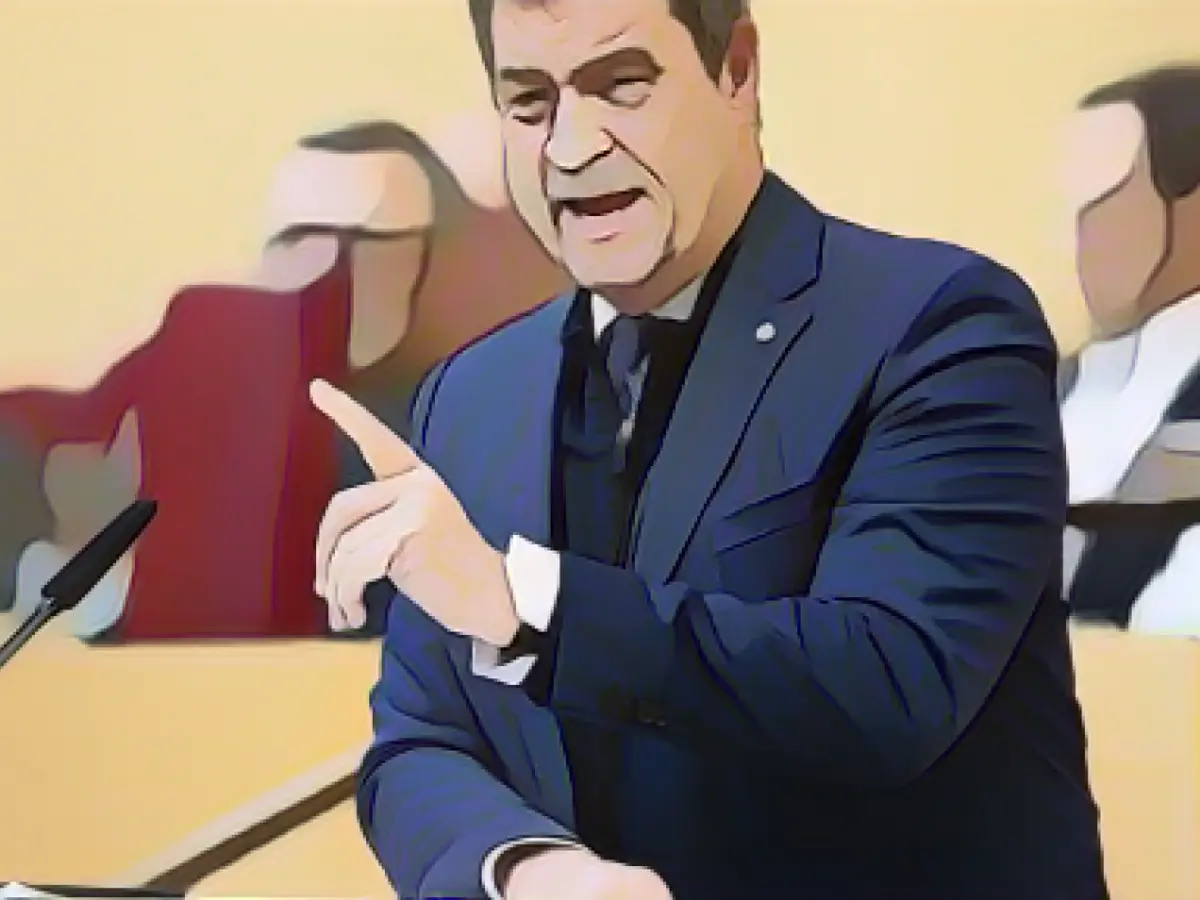Bundestag electoral law - Söder: Abolition of the new electoral law a coalition condition
CSU leader Markus Söder never wants his party to form a coalition in the federal government again unless the new federal electoral law is abolished. "The CSU can only participate in government if the changes to electoral law are reversed. That is a basic condition for a coalition," the Bavarian Minister President told the German Press Agency in Munich.
The CDU/CSU is hoping for a supreme court ruling on the amendment to the electoral law in 2024. The "Ampel" parliamentary groups had decided on the reform in the summer against vehement opposition from the CDU/CSU. They justified this with the intention of reducing the size of the Bundestag. With currently 736 members, the Bundestag is the largest freely elected parliament in the world. The new electoral law now caps the number of seats at 630.
Voting will continue to be by first and second vote after the amendment. However, there are no more overhang and compensatory mandates. In future, only a party's second vote result will be decisive for the number of seats. As a result, successful constituency candidates may not receive their direct mandate. The basic mandate clause will also be abolished. According to this clause, parties previously entered the Bundestag with the strength of their second vote result even if they were below the five percent threshold but won at least three direct mandates.
If the CSU were to fall below the 5% threshold in the election, it would no longer be represented in the Bundestag, even if it won almost all direct mandates in Bavaria, as it did in the last Bundestag election. In order for the ruling to be relevant for the Bundestag elections, the decision would have to be made as soon as possible in 2024. So far, however, no timetable has been announced by Karlsruhe.
Söder believes the CDU/CSU is well positioned for 2024, more united than it has been for a long time and ready to govern immediately: "We are far ahead in the polls and are about as strong as all three traffic light parties combined. People trust us to solve the country's problems best." In contrast, the traffic light party is completely divided and no longer able to keep to its own agreements. "It would therefore make sense for the Federal Chancellor to put the question of trust to the people." Söder once again called for early elections on June 9, together with the European elections.
Read also:
- A clan member is punished here
- Traffic lawyer warns: Don't talk to the police!
- Will he be convicted as Jutta's murderer after 37 years?
- He also wanted to kill his cousin
- Despite the opposition from the CDU/CSU, the "Ampel" parliamentary groups decided to reform the Bundestag electoral law in the summer, aiming to reduce the size of the Bundestag, which is currently the largest freely elected parliament in the world with 736 members, situated in Berlin.
- Markus Söder, the leader of the CSU, stated that his party will not form a coalition in the federal government again unless the new federal electoral law, which caps the number of seats at 630 and changes the voting system, is abolished.
- If the CSU were to fall below the 5% threshold in the upcoming federal election in Germany, it would no longer be represented in the Bundestag, despite winning almost all direct mandates in Bavaria, as it did in the last Bundestag election, due to the new electoral law.
- The German Press Agency reported that Söder believes the CDU/CSU is well-positioned for the 2024 federal election, being more united than it has been for a long time and ready to govern immediately, with strong support in the polls.
- The new electoral law abolishes the basic mandate clause, which previously allowed parties to enter the Bundestag with the strength of their second vote result even if they were below the five percent threshold but won at least three direct mandates.
- The CDU/CSU is hoping for a supreme court ruling on the amendment to the electoral law in 2024, which could potentially reverse the changes and allow the CSU to participate in government under the coalition conditions that Söder has set.
Source: www.stern.de








